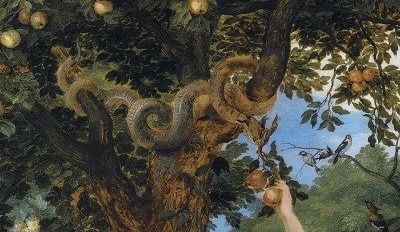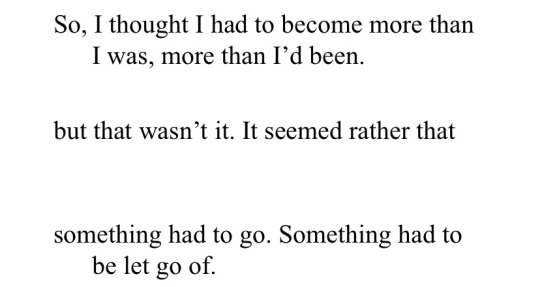#American Literature
Text
I finished Moby Dick. So, to continue my former post(s) documenting my thoughts, here we are (spoilers ahead):
captain ahab: i am once again asking hast thou seen the white whale
Narrator, for the 5 millionth time describing captain ahab: "MONOMANIACAL. MONOMANIAC. MONOMANIA."
I was thinking "the homosexual themes everyone talks about are really exaggerated apparently…" and then I got to the chapter about sperm squeezing
Stubb meeting with the French in chap 91 had the exact vibe of a filler episode on a comedy sitcom
there are a lot of moments that reminded me of The Office ngl like i could just imagine stubb in the little interview chair just talking. so much meme material. he's seriously just doing his own thing. the little random characters like the blacksmith and carpenter just talking shit and side-eyeing ahab in the background lmaoooo
Saint George didn't kill a dragon, it was a whale #THETRUTHREVEALED #WHALETRUTHERS
It would have been hilarious if the British people told Ahab that they already killed Moby Dick already before he could get to it. I was so hoping that would happen. Bonus points if it was the Rachel after he'd turned them away.
Ahab discusses the topic of madness a lot. It's almost like he's… mad...
I vote Ahab for the most Byronic hero to ever Byronic… Heathcliff and Rochester have nothing on him… The origin of the Byronic hero, Byron's titular character from the narrative poem Childe Harold, is literally mentioned by name in the novel and had to be a blatant inspiration - it could not be more obvious! (I have yet to encounter the famed Byronic heroes of Russian literature, most notably Eugene Onegin, a work where Byron is also blatantly name-dropped).
Everyone thinking Queequeg was dying and having a coffin made to his measurements and filled with grave goods at his direction and then him literally climbing into the coffin to test it out and then waiting silently to die…. then all of a sudden getting better and saying he chose to recover bc he remembered he had something on his to-do list….. iconic
Ishmael referring to Queequeg as "my Queequeg…" omg. Queerqueg
Queequeg drawing figures like the ones on his tattoos omg… au story where Queequeg is an artist/tattoo artist when???
I was literally saying "AWWWWW" out loud when Ahab and Pip were having their little moments
The irony of Ahab abandoning the Rachel then it coming back for Ishmael… the coffin lifeboat… etc… good stuff…
okay ahab is my man but yeah he was an asshole to the captain of rachel.
also feel bad for tashtego. he wanted that gold doubloon so bad and ahab was like SIKE, MOTHERFUCKER! umm tashtego did not get cut out of a whale by queequeg to deal with ur shit ahab!
Once again wanting a Black Sails/Moby Dick AU… I found this essay about the similarities between Flint/Ahab https://ijms.nmdl.org/article/view/22389/14361
They only have like 2-3 little moments together but like… Starbuck/Ahab kind of outdoing Ishmael/Queequeg there for a moment… chaps 132/134… oh my godddddddddddddd whyyyyyyy
Captain Ahab's moments in chapters 36/37 AAAAAHHHHH you will see me being normal about this
I noted some of my favorite Ahab moments/chapters and they are 36/37/41/70/99/108/109/113/115/116/119/125/129/132/134/135. Like I may seriously just re-read those chapters (no offense to Melville's whale facts, Stubb's jokes, & Pip's insanity)
the end is kind of similar to the great gatsby in the sense that you finally realize the entire novel was actually written for him to cope with his grief-related trauma & then suddenly it all makes sense. the lingering, the sentimentality regarding seemingly insignificant details or people, the meandering/digressing/procrastinating getting to the end, etc.
there are actually several moments -- i don't know if he actually referred to ahab or the others in past-tense specifically, but there were several moments where i felt like i kind of thought he was giving away the end before he did (it wasn't a shock to me bc i read about the end prior, but still)
#moby dick#herman melville#my reviews#reading opinions#book thoughts#book opinions#american literature#english literature#literature#lit#classic literature#captain ahab#melville#books#reviews#bookblr#spoilers#moby dick spoilers
42 notes
·
View notes
Text
(Here is a discussion post I wrote about Nathaniel Hawthorne’s short story, “The Birth Mark.” In the post, I compare the short story to the fall of man written about in Genesis. Do you think this is a valid comparison? I’m curious to hear others’ thoughts.)

Birth-Marks and Forbidden Fruit
(Jack C. 2024)
In terms of surface-level allegory, Nathaniel Hawthorne’s short story, “The Birth-Mark,” depicts an allegorical interpretation of human mortality and imperfection; nevertheless, I believe that an even darker allegory lies beneath the surface. One thing truly stood out to me as I read the story, and that is how the first sentence of dialogue is phrased. The sentence reads, “‘Georgiana,’ said he, ‘has it never occurred to you that the mark upon your cheek might be removed?’” (1). The key here is that the sentence is posed as a question. I was immediately reminded of Genesis 3:1, where the serpent in Eden asks Eve, “‘Did God really say, ‘You must not eat from any tree in the garden?’” (New International Version).
Both Eve and Georgiana seem indifferent to the question at first, but later, they succumb to doubt and end up attempting to “perfect themselves,” resulting in, essentially, the loss of life. Before the birthmark is removed, Hawthorne writes, “Not even Aylmer now hated it so much as she” (9). All it took was the suggestion of imperfection to make Georgiana begin to doubt and hate when she previously thought her mark added to her, “…charm…” (1).
This juxtaposition of Georgiana with Eve due to the first spoken dialogue being posed as a question leads me to believe that Hawthorne offers a double allegorical interpretation. The deeper symbolic meaning of Georgiana exemplifies the theme of innate human sin, or, the fall of man in terms of human doubt.
Works Cited
Hawthorne, Nathaniel. “The Birth-Mark.” 1843.
New International Version, Bible. Hodder &
Stoughton Ltd, 2007.
#essay#personal essay#essay writing#short essay#college essay#what are your thoughts?#English#English major#literature major#literature#engl major#english literature#american literature#academia#classic academia#aesthetic#chaotic academia#dark academia#college#uni#academics#chaotic academic aesthetic#dark acadamia aesthetic#romantic academia#light academia#academia aesthetic#nathaniel hawthorne#bible#readers#my essays
23 notes
·
View notes
Text

Kate Baer, from And Yet: Poems; “Idea”
[Text ID: “I will enjoy this life. I will open it like a peach in season, suck the juice from every finger, run my tongue over my chin. I will not worry about clichés or uninvited guests peering in my windows. I will love and be loved. Save and be saved a thousand times. I will let the want into my body, bless the heat under my skin. My life, I will not waste it. I will enjoy this life.”]
#kate baer#hope#excerpts#writings#literature#poetry#fragments#selections#words#quotes#poetry collection#typography#american literature#american poetry
13K notes
·
View notes
Photo

Janet Fitch, from White Oleander
#janet fitch#white oleander#lit#literature#american literature#typo#typography#fragments#nostalgia#*
34K notes
·
View notes
Text
When Emily Brontë wrote, “He’s more myself than I am. Whatever our souls are made of, his and mine are the same.”
#emily bronte#wuthering heights#dark academia#literature#gothic literature#dark academia aesthetic#booklr#light academia#classic literature#academic#american literature#study aesthetic#studyblr#english literature
2K notes
·
View notes
Text

— Bob Dylan from When the Deal Goes Down on Modern Times (2006)
#zimmerman my love#Bob Dylan#modern times#when the deal goes down#literature#dark academia#aesthetic#books#poetry#light academia#academia#dark academia style#dark academia aesthetic#litblr#American literature#lyrics#music#🌧
54K notes
·
View notes
Text
‘— and I stood there, flooded with longing, electric, shivering.’
— Sylvia Plath, The Unabridged Journals of Sylvia Plath. July 1950s
#sylvia plath#the unabridged journals of sylvia plath#american literature#fragments#excerpts#on longing#on desire
807 notes
·
View notes
Text

Marie Howe, from Magdalene: Poems; "The Teacher"
Text ID: So, I thought I had to become more than / I was, more than I'd been. / but that wasn't it. It seemed rather that / something had to go. Something had to / be let go of.
8K notes
·
View notes
Text

Bright Dead Things, Ada Limón.
504 notes
·
View notes
Text

Louise Glück, from “Poems: 1962-2012; Persephone The Wanderer", published c. 2012.
822 notes
·
View notes
Text
I think houses live their own lives along a time-stream that’s different from the ones upon which their owners float, one that’s slower. In a house, especially an old one, the past is closer.
Stephen King, Bag of Bones, 1998
705 notes
·
View notes
Text

Kate Baer, from And Yet: Poems; “40”
[Text ID: “because sometimes it is easier to / write yourself out of the play / than to face another breakfast.”]
#kate baer#excerpts#writings#literature#poetry#fragments#selections#words#quotes#poetry collection#typography#american literature#american poetry
8K notes
·
View notes
Photo

James Baldwin, from Giovanni’s Room
16K notes
·
View notes
Text
“Most of us … are slaves of longing.”
— bell hooks, Communion
#academia#bell hooks#dark academia#light academia#classic literature#literature#booklr#academic#dark academia aesthetic#study aesthetic#american literature#studyblr#feminism#yearning academia aesthetic#yearning aesthetic
1K notes
·
View notes
Photo

Angie Hoffmeister’s illustration for Shirley Jackson’s The Haunting of Hill House.
#angie hoffmeister#shirley jackson#the haunting of hill house#haunting of hill house#american literature
3K notes
·
View notes
Text

this image haunted me until i made it real
#the great gatsby#jay gatsby#great gatsby#my sense of humor is so adjective#classic literature#american literature
545 notes
·
View notes